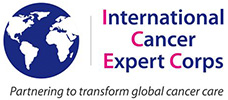Bona fide career path for global oncology –
The ICEC’s Young Investigators’ Conference, “Pioneering Action for Global Cancer Care,” touched upon the issue: What is now needed is a bona fide career path for global oncology.
Perhaps the significant gap to fill for progress in global health is what ICEC denotes as “owning someone’s time” so that there can be a sustainable career path. As with all aspects of professional effort, finding time requires planning, assessment and adaptation. Many aspects of professional medical careers are the expected and accepted routines of patient care, teaching, administration, participation in research, community service and professional development, among others. These are generally supported by practice revenue. Up to now, time spent on global health has largely been considered extraneous and even detrimental to a career and, thus, is often accomplished on vacation and weekends. Therefore, participation in global health is mostly unpredictable and seemingly haphazard. Academic departments expect work in global health to be supported by outside funding such as grants which are challenging to obtain. This is true even more nowadays because of fierce competition for research dollars often pitting global health against basic science and innovative (and expensive) new imaging and treatment technology. Outside funding is certainly desirable, but for programs to depend largely or entirely on such financing predictably leads to discontinuity of programs which is not acceptable when patient care is involved. We hear many stories from our Young Leaders alleging that their department chairs declare that this work is not affordable and cannot be done as part of their jobs. This is often experienced even in large-sized departments where asking for 20% or so of time from 1-2 faculty members should be manageable. That the lack of ability to spend time with patients and increasing physician burnout is widely recognized is nicely summarized in the New England Journal of Medicine (J. Noseworthy. The future of care- preserving the patient-physician relationship, 381:2265, 2019).
This attitude may now be changing due, in part, to positive pressure from emerging young leaders who have an interest expanding the scope of practice in radiation oncology. Below are three examples of papers in well-read journals for which prominent authors are ICEC Early Career leaders.
- “Enhancing Career Paths for Tomorrow’s Radiation Oncologists”. Vapiwala N, Thomas CR Jr, Grover S, Yap ML, Mitin T, Shulman LN, Gospodarowicz MK, Longo J, Petereit DG, Ennis RD, Hayman JA, Rodin D, Buchsbaum JC, Vikram B, Abdel-Wahab M, Epstein AH, Okunieff P, Goldwein J, Kupelian P, Weidhaas JB, Tucker MA, Boice JD Jr, Fuller CD, Thompson RF, Trister AD, Formenti SC, Barcellos-Hoff MH, Jones J, Dharmarajan KV, Zietman AL, Coleman CN. Int J Radiat Oncol Biol Phys. 2019 Sep 1;105(1):52-63.
-This paper identifies ten areas into which radiation oncology practice can be expanded including global health, government service, outcomes & policy, epidemiology, palliative care and frontier medicine. These areas are directly related to addressing disparities in access to healthcare globally as well as in geographically isolated regions in the US and other resource-rich countries, particularly for indigenous populations.
- “Shaping the Path for a Global Oncology Academic Career”. Balogun OD, Choi AMK, Formenti SC. JAMA Oncol. 2019 Jul 1;5(7):931-932.
-This paper shows that it is a challenge to assess progress and recognize accomplishments in global health because, in part, the usual measures of success in academia are currently difficult to achieve, including publication in what are called “high impact” journals and attaining sustainable grant support, particularly from prestigious funding sources such as the National Institutes of Health. Given the highly competitive nature and low success rate (~10%) for grant funding, it is a challenge to obtain and sustain a funding stream. Of necessity, most scientists spend a significant amount of their time in the funding process.
- “Global Health in Radiation Oncology: The Emergence of a New Career Pathway”, Semin Radiat Oncol. 2017 Apr;27(2):118. Co-authors are Danielle Rodin, Mei Ling Yap, Surbhi Grover, John M. Longo, Onyinye Balogun, Sandra Turner, Jesper G. Eriksen, C. Norman Coleman and Meredith Giuliani.
-The paper explores how defining specific competencies in this area can help trainees and practitioners integrate their activities in global health within their existing roles as clinicians, educators, or scientists. Defining these would also help create a new global health track for academic advancement, which could focus on such domains as implementation science, health service, and advocacy. It discusses how effective mentorship models, international partnerships, and institutional twinning arrangements support this work and explores how new resources and funding models might be used to further develop and expand radiation oncology services globally.

